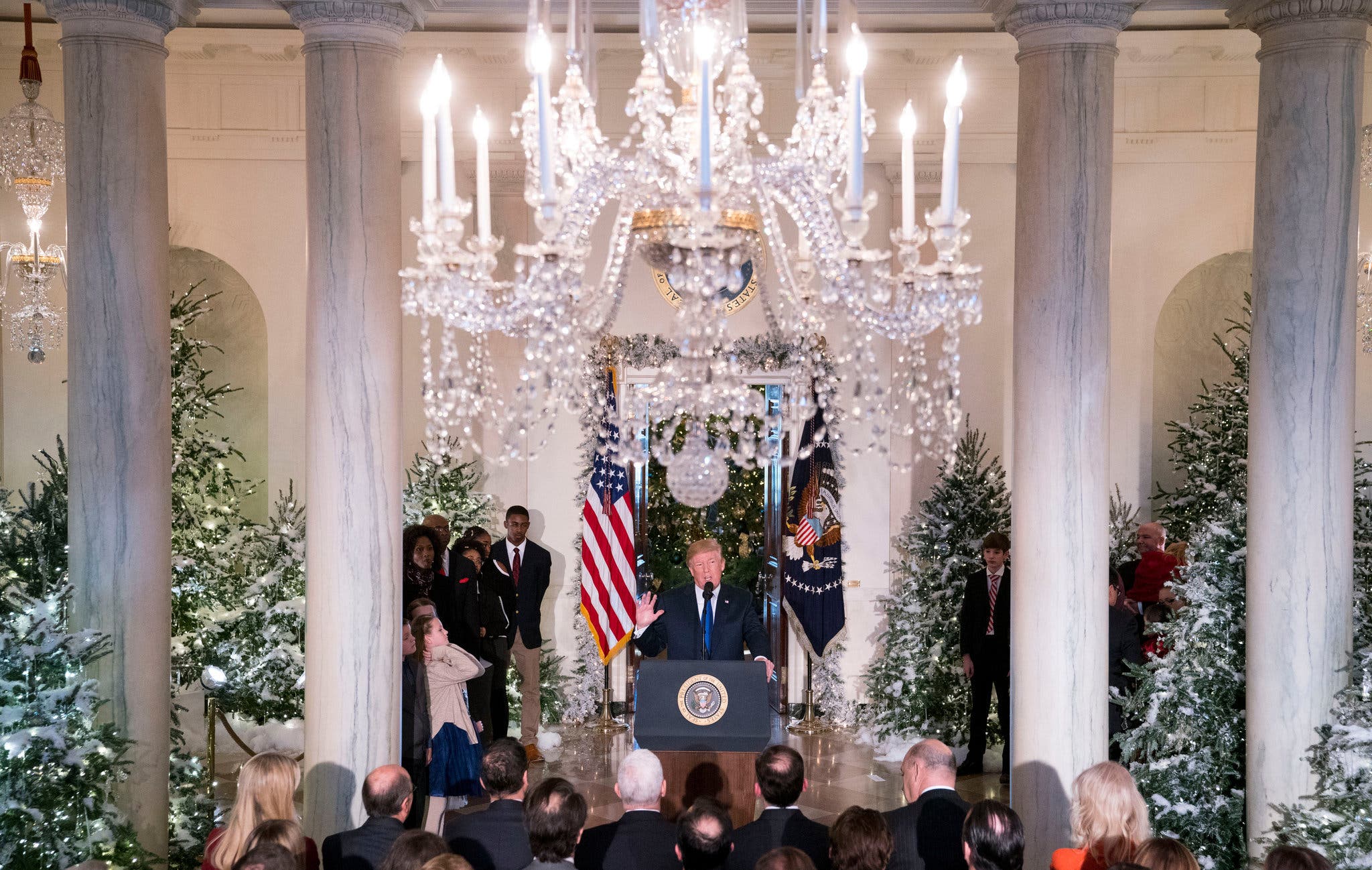The One Percent Budget Showdown: Clinton's Veto Threats And Their Impact

Table of Contents
The Political Landscape of the 1990s Budget Battles
The 1990s economic climate was characterized by a significant budget deficit, fueling intense debate about fiscal conservatism. This backdrop set the stage for major partisan clashes between the Democratic President and the Republican Congress. The contrasting approaches to budget reduction highlighted a growing political polarization.
- A Nation in Debt: The national debt ballooned throughout the 1980s, creating pressure to reduce government spending and address the fiscal imbalance.
- Ideological Divide: Republicans favored tax cuts and reduced government spending as the primary means to stimulate economic growth, often targeting social programs. Democrats generally prioritized maintaining social safety nets while advocating for targeted tax increases on higher earners.
- Key Players: Beyond President Clinton, key figures included Newt Gingrich (Speaker of the House), Bob Dole (Senate Majority Leader), and Treasury Secretary Robert Rubin, whose differing perspectives shaped the budget negotiations.
Clinton's Veto Threats: A Strategic Tool
President Clinton employed veto threats as a significant tool in the budget battles. His willingness to use this presidential power, particularly concerning tax cuts benefiting the "one percent," shaped the trajectory of legislative negotiations.
- Veto Threats as Leverage: Clinton's administration strategically threatened vetoes on bills containing provisions perceived as overly favorable to high-income earners. This tactic aimed to force compromises that balanced tax cuts with investments in crucial social programs.
- Negotiating Tactic vs. Genuine Opposition: The threat of a veto wasn't always a reflection of absolute opposition; often it served as a powerful negotiating tool to secure concessions and shape the final legislation. This strategic use of presidential power highlighted the importance of compromise in the legislative process.
- Public Opinion's Influence: Public opinion played a considerable role. Clinton’s stance on issues related to taxation of the wealthy, and his willingness to use the veto, was influenced by public sentiment and helped frame the political debate.
The Impact on Tax Policy and the "One Percent"
Clinton's veto threats, while not always resulting in complete blockage of tax cuts for the wealthy, directly influenced tax policy affecting the "one percent."
- Actual Impact of Vetoes: While some tax cuts for high-income earners were passed, the veto threats ensured that these cuts were often smaller or accompanied by measures designed to offset their impact on the deficit. The threat of a veto effectively limited the extent of tax reductions aimed specifically at the wealthiest Americans.
- Short-Term and Long-Term Consequences: The budget decisions of this era impacted income inequality and the overall distribution of wealth. While debates continue, the short-term effects included reduced budget deficits, and long-term consequences are still being analyzed in terms of their effect on wealth distribution.
- Fairness and Inequality: The budget battles of the 1990s ignited intense debate about the fairness of the tax system and the implications of income inequality. Clinton's actions became a focal point in this ongoing discussion, shaping political rhetoric for years to come.
Long-Term Implications for American Politics
The "one percent budget showdown" had far-reaching consequences for American politics extending beyond the immediate legislative outcomes.
- Executive-Legislative Relations: Clinton's assertive use of the veto power significantly impacted the relationship between the executive and legislative branches. It established a precedent for presidential engagement in budget negotiations, demonstrating the power of the veto as a strategic tool.
- Increased Political Polarization: The intense partisan battles contributed to the increasing political polarization observed in subsequent decades. The budget showdowns exacerbated existing divisions, setting a tone for future conflicts over fiscal policy.
- Lessons for Today: The historical events offer valuable lessons about the complexities of bipartisan cooperation, the consequences of political gridlock, and the challenges of navigating budget debates in a highly polarized political climate. These lessons remain relevant to contemporary fiscal policy discussions.
Conclusion
The Clinton-era "one percent budget showdown" highlights the pivotal role of presidential vetoes in shaping economic policy and influencing the political landscape. Clinton's strategic use of veto threats concerning tax policies affecting the wealthiest Americans had a tangible impact on legislation, influencing the balance between tax cuts and deficit reduction. These battles left a lasting mark on executive-legislative relations, contributing to increased political polarization, and continue to inform contemporary debates about fiscal responsibility and income inequality. Understanding this historical context is crucial for navigating present-day discussions on tax policy and budget priorities. Learn more about the impact of presidential vetoes and their role in shaping economic policy by exploring further resources on the 1990s budget battles and the legacy of the Clinton presidency.

Featured Posts
-
 Motor De Agua Britanico Una Revolucion En La Tecnologia De Combustion
May 23, 2025
Motor De Agua Britanico Una Revolucion En La Tecnologia De Combustion
May 23, 2025 -
 Significant Changes Lead To House Passage Of Trump Tax Bill
May 23, 2025
Significant Changes Lead To House Passage Of Trump Tax Bill
May 23, 2025 -
 Cat Deeley And The Cream Pleated Midi Skirt A Spring Fashion Trend
May 23, 2025
Cat Deeley And The Cream Pleated Midi Skirt A Spring Fashion Trend
May 23, 2025 -
 The Making Of Alpha Tahar Rahims Performance And Ducournaus Vision
May 23, 2025
The Making Of Alpha Tahar Rahims Performance And Ducournaus Vision
May 23, 2025 -
 The Tour De France Edinburghs 2027 Grand Depart
May 23, 2025
The Tour De France Edinburghs 2027 Grand Depart
May 23, 2025
Latest Posts
-
 Plateformes De Streaming Au Quebec Obligation De Contenu Francophone
May 23, 2025
Plateformes De Streaming Au Quebec Obligation De Contenu Francophone
May 23, 2025 -
 Onlarin Cekim Guecue Seytan Tueyue Olan Burclar
May 23, 2025
Onlarin Cekim Guecue Seytan Tueyue Olan Burclar
May 23, 2025 -
 7 Eleven Canada Partners With Odd Burger For Nationwide Vegan Expansion
May 23, 2025
7 Eleven Canada Partners With Odd Burger For Nationwide Vegan Expansion
May 23, 2025 -
 Le Quebec Reglemente Le Contenu Francophone Sur Les Services De Streaming
May 23, 2025
Le Quebec Reglemente Le Contenu Francophone Sur Les Services De Streaming
May 23, 2025 -
 Odd Burger Vegan Meals Now Available At 7 Eleven In Canada
May 23, 2025
Odd Burger Vegan Meals Now Available At 7 Eleven In Canada
May 23, 2025
